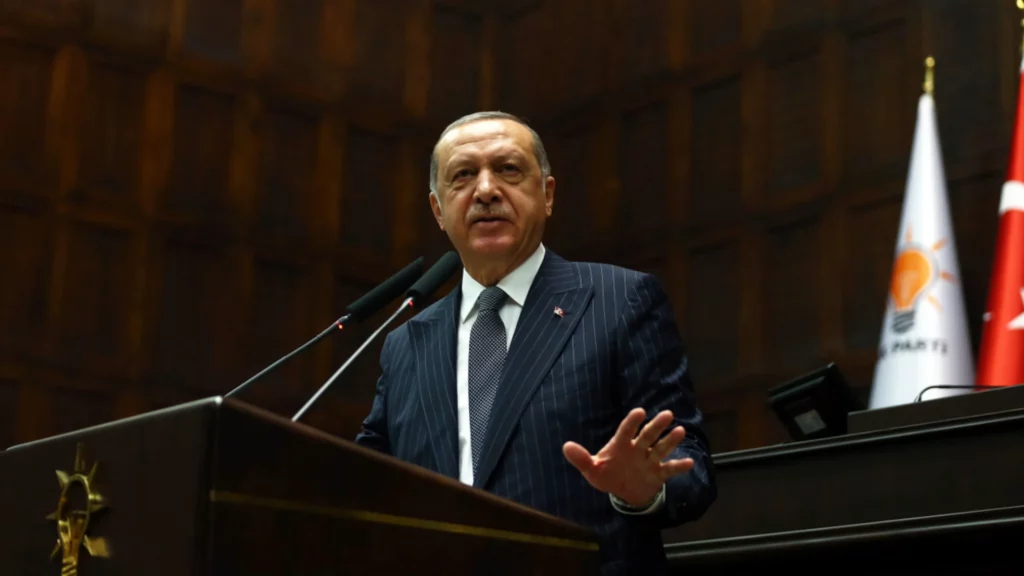The budget deficit is one of Erdogan’s top concerns; it escalated after his recent re-election. It is estimated that the budget deficit might cross the 10% mark of the gross domestic product by the end of this year
The re-elected Turkish President Recep Tayyip Erdogan is on a three-day tour of the Persian Gulf starting Monday. His first stop in Saudi Arabia involves a meeting with Crown Prince Mohammed bin Salman. This tour is pivotal for the Turkish economy, which has been in shackles for quite a long time.
Turkish annual inflation is at record highs standing at 38% for June; it is still a relief for the citizens who faced inflation of over 85% in October last year. The current account deficit is constantly widening with recent years at a record high of $37.7 billion in just the mid-year. Erdogan is trying to seal financial aid from Gulf nations to bridge the gap.
Budget Deficit
This humongous budget deficit is one of Erdogan’s top concerns; it escalated after his recent re-election. It is estimated that the budget deficit might cross the 10% mark of the gross domestic product by the end of this year. The parliament even passed a supplementary budget, permitting an extra expenditure of 1.1 trillion liras ($42 billion).
The uncontrolled inflation is a result of an expanding budget deficit. The government is stressed by the pressure to curb inflation, as local elections are due in March next year. The allowed additional spending fell short of fulfilling the economy’s needs, so the ruling party tried different routes. Erdogan’s party passed another bill permitting the president to hand out funds to public enterprises by stretching his borrowing limits. The opposition heavily criticised this move, calling it an unlawful move.
Some viable solutions to such an inflationary scenario are possible but won’t be politically correct. The government is not opting for harsh methods like drastically reducing public expenditure, raising central bank interest rates, etc., to decrease income and slow down the economy. Experts suggest that such measures can negatively impact the upcoming elections.
Budgetary spending
The 2023 budget presented public spending of 4.5 trillion liras or $172 billion with a deficit of 661 billion liras ($25.3 billion). According to the government data, the budget deficit had inflated to 263 billion liras ($10 billion) by June of the current year. This figure is almost 40% of the nation’s estimated deficit for the whole year. The main focus of this budget was spending for election benefits, but this plan got cancelled due to the two devastating earthquakes of magnitude 7.8 and 7.5 that wrecked the southern parts of the country in early February.
The earthquakes were so catastrophic that they took more than 45,000 lives and wrecked near about 650,000 buildings. This destruction required an additional spending package for restoration, especially for the loss of houses and commercial infrastructure. The additional budget bill had provisioned almost 40% of the allocated funds for reconstruction plans.
The currency downfall has also expanded the budget gap. The lira has been falling after the presidential elections in May this year. Ankara is pushing for reducing the use of dollars and has devised a deposit scheme to boost lira deposits. The Central bank reimburses depositors for the depreciation in addition to the deposit interests paid by the bank.
The value has eroded nearly 23% since late May. This depreciation has escalated the estimated cost of the compensation scheme. The additional bill has advised the central bank to settle accounts relating to such compensations and unburden the budget from such expensive reforms.
Ankara is currently struggling to secure an additional 2 trillion liras, or $76 billion, in funds for public expenditure. The supplementary budget requires the government to present revenue streams for the 2 trillion liras and move forward with the 661 billion liras.
The parliament recently passed an inclusive bill that will permit Erdogan to allocate funds to public sector enterprises by increasing presidential borrowing. This will meet the fund requirement for 794 billion liras ($30 billion) for Erdogan’s needs.
Foreign funds
Turkey is eyeing foreign funds to cover its budget gap. They have succeeded in winning the confidence of Gulf investors after strenuous efforts to bring in Western investors. Mehmet Simsek, the Treasury and Finance minister, has had talks with the United Arab Emirates, Saudi Arabia and Qatar, and other wealthy Gulf individuals in recent times. The recent three-day tour of the president aims to secure capital from such ultra-wealthy monarchs.
The government has not yet disclosed any development. But anonymous sources have said deals worth over $30 billion might be in the pipeline. Direct investments worth $10 billion could be witnessed in the near future. As per Bloomberg’s sources, a merger and acquisition deal worth $25 billion might come from the Gulf.
